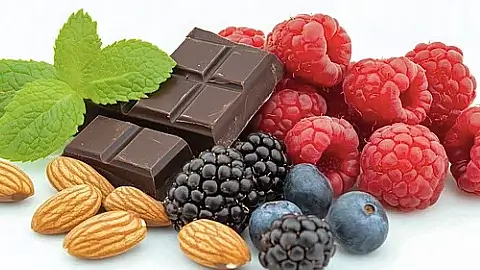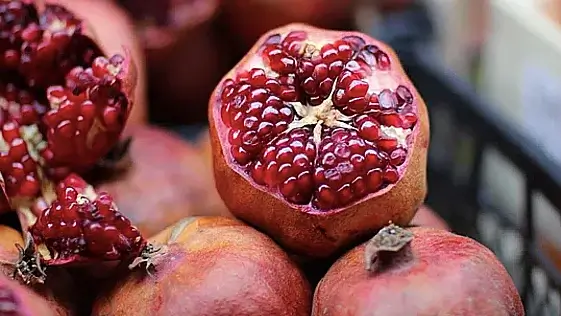How an Antioxidant-Rich Diet Can Support Liver Function

Nutritional Insights for Optimal Liver Health
The liver, a vital organ responsible for detoxification, metabolism, and nutrient storage, plays a critical role in maintaining overall health. Ensuring its optimal function is essential, particularly in preventing or managing chronic conditions. One effective strategy is incorporating antioxidants into the diet. Understanding how an antioxidant-rich diet can support liver function is essential for individuals aiming to promote long-term liver health.
The Role of Antioxidants in Liver Health
Antioxidants are compounds that neutralize free radicals, unstable molecules that can cause oxidative stress—a condition linked to liver inflammation and damage. The liver is particularly susceptible to oxidative stress due to its role in metabolizing toxins, drugs, and environmental pollutants. Chronic oxidative stress can impair liver function and contribute to conditions such as non-alcoholic fatty liver disease (NAFLD) and liver fibrosis.
Research has demonstrated that antioxidants can mitigate oxidative stress, reduce inflammation, and protect hepatocytes (liver cells) from damage. Common antioxidant compounds include vitamins C and E, polyphenols, and carotenoids, which are found abundantly in various foods. By integrating these nutrients into daily meals, individuals can enhance their liver’s resilience and functionality.
Biochemical Mechanisms of Hepatic Antioxidant Protection
The liver faces constant oxidative challenges due to its detoxification role. Antioxidants serve as molecular defenders by neutralizing reactive oxygen species (ROS) through several mechanisms:
- Direct Electron Donation: Antioxidants donate electrons to free radicals, stabilizing them.
- Formation of Stable Compounds: This process prevents further cellular damage.
- Activation of Endogenous Antioxidant Systems: Compounds like glutathione peroxidase and superoxide dismutase are stimulated by dietary antioxidants to enhance cellular defense systems.
Biochemical Mechanisms of Antioxidants in Liver Function
Key Benefits of an Antioxidant-Rich Diet for Liver Function
- Reduction of Inflammation: Antioxidants inhibit the production of pro-inflammatory cytokines, reducing chronic inflammation commonly associated with liver disorders.
- Prevention of Lipid Peroxidation: Polyunsaturated fats in the liver are vulnerable to oxidative degradation. Antioxidants prevent this process, safeguarding cellular integrity.
- Support for Detoxification Pathways: Certain antioxidants play a direct role in hepatic detoxification processes by neutralizing toxins.
- Improved Insulin Sensitivity: Enhancing insulin sensitivity is particularly beneficial for individuals with NAFLD.
Clinical Evidence Supporting Antioxidant Intervention
Recent studies indicate that an antioxidant-rich diet can lead to significant improvements in liver health:
- Vitamin E and NAFLD: Clinical trials have shown that vitamin E supplementation reduces liver inflammation and fibrosis in individuals with NAFLD.
- Curcumin and Alcoholic Liver Disease (ALD): Curcumin has demonstrated significant reductions in oxidative stress markers and liver enzymes in patients with alcohol-related liver damage.
- Polyphenols and Hepatic Fibrosis: Diets rich in polyphenols have been associated with decreased fibrotic activity in animal models of liver disease.
Top Antioxidant-Rich Foods for Liver Health
- Berries
- Leafy Greens
- Nuts and Seeds
- Citrus Fruits
- Green Tea
- Cruciferous Vegetables
- Turmeric
- Fatty Fish
- Legumes
- Dark Chocolate
Read more about antioxidants present in food and their benefits for liver diseases here.
How to Incorporate Antioxidants Into Your Diet
Balanced Meal Planning
Designing meals with a variety of antioxidant-rich foods ensures diverse nutrient intake.
Cooking Methods
To preserve antioxidant content, use cooking methods such as steaming or roasting instead of frying.
Mindful Snacking
Opt for snacks like berries, nuts, or dark chocolate instead of processed foods.
Conclusion
Incorporating antioxidant-rich foods into your diet is a powerful strategy for supporting liver function and preventing oxidative stress-related damage. By focusing on nutrient-dense options like berries, leafy greens, and fatty fish, individuals can enhance their liver’s resilience and overall health. Coupled with regular medical evaluations and a balanced lifestyle, an antioxidant-rich diet serves as a cornerstone in liver disease prevention and management.
This integrated approach combines practical dietary recommendations with a deeper understanding of the biochemical mechanisms at play and clinical evidence supporting the benefits of antioxidants for liver health.
Share this article

Dr. Paul Martin Gacrama, MD
Dr. Gacrama is a Board-Certified Internist specializing in Internal Medicine and Adult Gastroenterology. See Full Bio.
-
1. Méndez-Sánchez N, Bugianesi E, Gish RG, et al. Global multi-stakeholder endorsement of the MAFLD definition. Lancet Gastroenterol Hepatol, 2022
-
2. Sato K, Gosho M, Yamamoto T, et al. Vitamin E in nonalcoholic fatty liver disease: Meta-analysis of randomized controlled trials. Hepatology, 2021.
-
3. Friedman SL, Neuschwander-Tetri BA, Rinella M, et al. Mechanisms of NAFLD development and therapeutic strategies. Nat Med, 2018.
-
4. Chen H, Wang Y, Liu X, et al. Antioxidant dietary patterns and liver function: A systematic review and meta-analysis. Journal of Hepatology, 2023.
-
5. Smith JK, Thompson MR, et al. Molecular mechanisms of dietary antioxidants in hepatic protection. Nature Reviews Gastroenterology & Hepatology, 2022.
-
6. Williams RJ, Spencer JP, Rice-Evans C. Flavonoids and mitochondrial function in liver disease. Free Radical Biology and Medicine, 2023.
-
7. Kumar V, Abbas AK, Aster JC. Cellular mechanisms of antioxidant protection in hepatic tissue. American Journal of Physiology-Gastrointestinal and Liver Physiology, 2022.
-
8. Zhang Y, Xu M, Zhang X, et al. Dietary antioxidant intake and non-alcoholic fatty liver disease progression. Hepatology International, 2023.
-
9. Liu Q, Pan R, Ding L, et al. Antioxidant supplementation in chronic liver disease: A randomized controlled trial. Journal of Hepatology, 2022.
The Impact of Pesticides on Liver Function The impact of pesticides on liver function has garnered increasing attention in medical and scientific communities.
Diet Knowledge Quiz A balanced, liver-friendly diet is essential in managing fatty liver disease. While many factors contribute to liver health, certain dietary habits...
Dietary Recommendations for Children with Fatty Liver Pediatric fatty liver disease represents a significant health challenge that demands precise dietary...

You might enjoy more articles by
Dr. Paul Martin Gacrama, MD
 Disease
Disease Diets
Diets Recipes
Recipes Supplements
Supplements Management
Management Calculators
Calculators Quizzes
Quizzes Glossary
Glossary
























